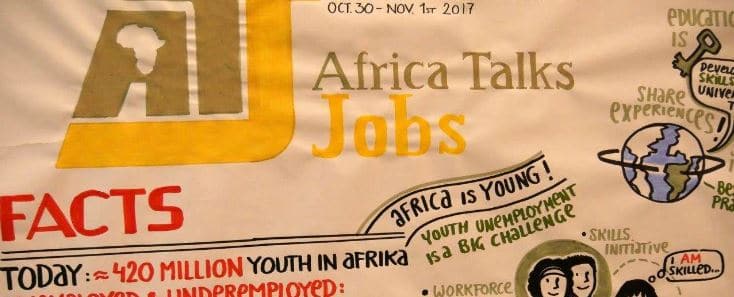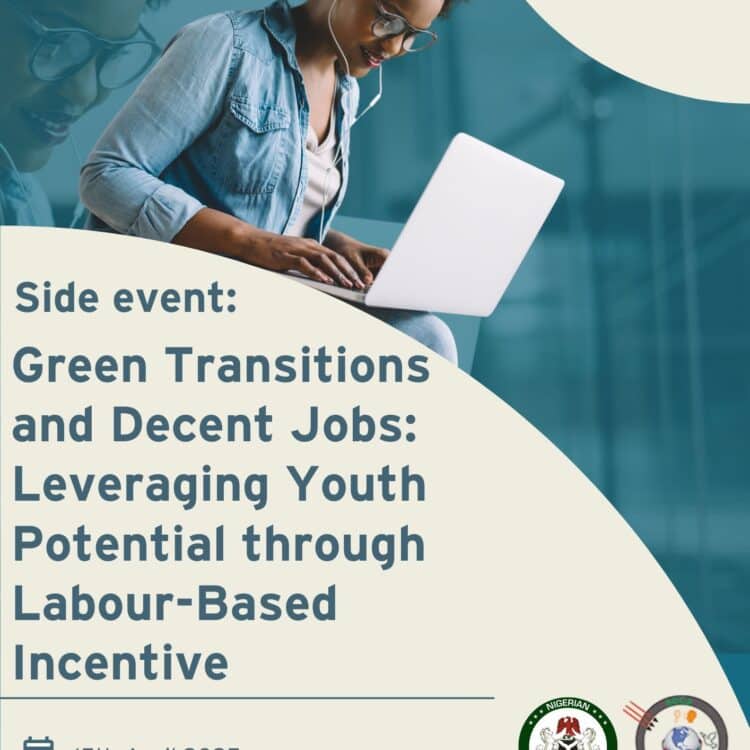
INCLUDE’s Marleen Dekker and Simone Reinders participated in the Africa Talks Jobs continental dialogue on ‘Equipping the youth with adaptive education and skills for employment’ in Addis Ababa from 30 October to 1 November. The meeting, which was organized by the African Union Commission, New Partnership for Africa’s Development (NEPAD) and Business Africa, was part of a series of events for the ‘Year of the Demographic Dividend’ and a side event to the 5th AU-EU Summit.
The opening address highlighted the need to invest in the development of youth skills in order to harness the demographic dividend in Africa in the context of the AU Agenda 2063. Among other things, this Agenda sets the target of tertiary education achievement at 70%. One of the panellists stated that, in the current political context, many choose to develop programmes to achieve this goal outside the institutional system and have no hope of support from the government. Young participants in the audience called for a transgenerational dialogue to address these challenges.
Throughout the meeting, the urgency of not only skills development, but also creating employment opportunities to harness the demographic dividend and ‘make youth the winning team’, was highlighted as paramount. In Tunisia, for example, for every worker retiring, at least four new workers enter the labour market each year. Youth need to go from earning to learning and from job seekers to job creators. As underlined by HE Prof Sarah Anyang Agbor, Commissioner for Human Resources of the African Union Commission, we need to move from ‘Africa talks jobs’ to ’Africa makes jobs’.
Three keys issues that were discussed at the youth employment conference organized by INCLUDE and the Dutch Ministry of Foreign Affairs in May resonated at the conference: private sector engagement, the importance soft skills, and the heterogeneity of African youth. Both participants and speakers emphasized the importance of soft skills, but called for a different wording, as the connotation of the word ‘soft’ undermines its importance. A holistic approach combining different types of skills is required. In such an approach, the diversity of the aspirations and needs of different groups of youth should be recognized. This means skills development should not only focus on TVET and higher education, which captures only 5–10% of the population, but also on more informal activities. At Africa Talks Jobs, a special taskforce presented recommendations to policymakers and received a commitment from 120 members of Business Africa to create stronger linkages between education and the private sector.
The dialogue was supported by the EU, GIZ, BMZ and KFW, which are working to build alliances with African partners for skills development and employment. It brought together approximately 400 delegates from the five regions of Africa, the diaspora and Europe, including representatives of the business community, academia, youth expert groups, youth organizations, civil society, and senior government officials. As well as the dialogue, the meeting provided space for knowledge sharing and networking in the market place and open labs, with organizations such as YouMatch, Starthub Africa and the PEDA toolbox for best practices in skills development (forthcoming) presenting their activities and sharing their hands-on experience in skilling youth and employment creation.




